Plenaries
Opening Plenary
Then Humans Arrived On The Scene…Causing A Disturbance
-Professor Leroy Little Bear
Dr. Leroy Little Bear has himself become an institution. Little Bear’s lifetime of accomplishment includes some of the most important political achievements for Indigenous peoples in Canada and around the world.
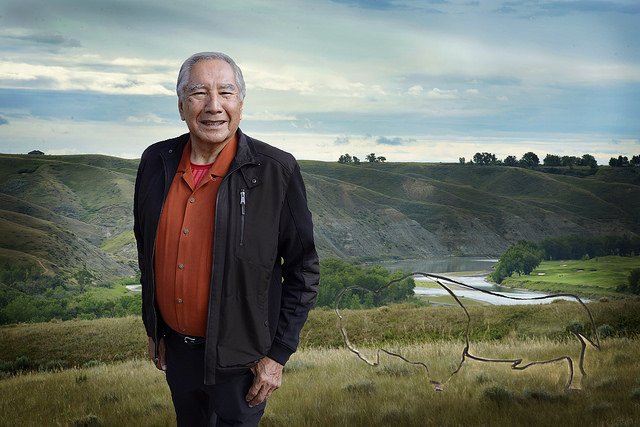
Professor Emeritus at the University of Lethbridge
SUNDAY, AUGUST 14 | 5:00-6:30PM EST
Room 517
His dedication to education, leadership, community-building and advocacy has led to a United Nations declaration, changed the Constitution of Canada and influenced the lives of thousands of students. He is a Blackfoot researcher who was born and raised on the Kainai First Nation in Alberta, Canada.
Little Bear founded the Native American Studies Department at the University of Lethbridge – where he served as Chair for 21 years – also went on to become the founding Director of Harvard University’s Native American Program. He’s co-authored three texts – Pathways to Self-Determination: Native Indian Leaders Perspectives on Self-Government, Quest for Justice: Aboriginal Rights in Canada, and, Governments in Conflict: Provinces and Indian Nations in Canada – and helped write Justice on Trial, the report of Alberta’s Task Force on the Criminal Justice System and Its Impacts on the Indian and Métis Peoples of Alberta.
In the spring of 2003, Little Bear was awarded the prestigious National Aboriginal Achievement Award for Education, the highest honor bestowed by Canada’s First Nations community. Little Bear is the recipient of honorary doctorates from the University of Lethbridge and the University of Northern British Columbia. Along with his wife, Amethyst First Rider, Little Bear brought about the historic Buffalo Treaty between First Nations on both sides of the USA-Canada border in 2014. Little Bear was inducted into the Alberta Order Excellence and the Order of Canada in 2016 and 2019, respectively.
After a lifetime of educational service, Little Bear remains a dedicated and dynamic teacher and mentor to students and faculty at the University of Lethbridge. He continues to pursue new research interests including, North American Indian science and Western physics, and the exploration of Blackfoot knowledge through songs, stories and landscape.
Scientific Plenary
The Sixth Mass Extinction, the Tree of Life, and the Future of Humanity
-Professor Gerardo Ceballos
Professor Gerardo Ceballos is both very well-known and highly distinguished environmental scientist. That status is the result of (1) his pioneering and extraordinarily diverse ecological and conservation research, (2) his unparalleled efforts to bring ecological knowledge to bear on crucial societal issues, (3) his building of bridges between ecology and conservation in order to humane find paths to ecological sustainability, and (4) his untiring efforts to increase the ecological literacy of the general public.

Senior Researcher, Institute of Ecology at Universidad Nacional Autonoma de Mexico
MONDAY, AUGUST 15 | 8:00 – 10:00 AM EST
Room 517
Professor Ceballos’ distinction is now doing path-breaking research, building cross-disciplinary collaborations, training students and post-docs, and tirelessly propagating his insights to policy-makers and the public.
He did his BA in Biology in Mexico City, a Masters in Ecology in the University of Wales and his Ph.D. in Ecology at the University of Arizona. He is a Professor at the UNAM since 1998 and a member of the Mexican Academy of Sciences since 1993. Ceballos’ work has had a major impact on the definition and implementation of environmental policies in natural protected areas, endangered species, and environmental impact statements. He proposed the first Mexican endangered species act, which includes roughly 3000 species of plants and animals in the country. This is the most important environmental legislation providing protection to those species in Mexico. In addition, he has tiredly proposed the establishment and better management of Mexican protected areas. He has been personally proposed to the government and seen through to establishment more than 20 protected areas, that almost 2% of the Mexican land territory.
Ceballos scientific production includes 500 scientific and outreach articles, and 54 books. He is the ecologist and conservationist in Latin America with more books published; no ecologist in Mexico has more articles in the best scientific journals. His work has appeared in journals such as Science, Proceedings of the National Academy of Sciences, PlosOne, Conservation Biology, Ecology, Ecological Applications and Biological Conservation. His work has been cited more than 26,500 times in journals and books
Professor Ceballos has taught courses in conservation of biological diversity in undergraduate and graduate programs at UNAM, UAM and the University of Arizona; he has taught more than 1000 students. He has directed more than 40 graduate theses. He has received numerous international scientific and conservation awards. He was elected as a Foreign Member of the American Academy of Arts and Sciences in 2014 and the National Academy of Sciences in 2019, an honor that he shares with only other 6 Mexican scientists.
New Phytologist Foundation Keynote
Plant Ecology in the Age of Robots
-Professor Etienne Laliberté
Etienne Laliberté is a professor at Université de Montréal, where he leads the Laboratory of Plant Functional Ecology. He holds the Canada Research Chair in Plant Functional Biodiversity and is the Principal Investigator of the Canadian Airborne Biodiversity Observatory (CABO). He also acts as co-director of Québec’s Center for Biodiversity Science (QCBS), a network of 105 researchers and over 800 students across Québec.
Research in his group focuses on understanding the causes and consequences of changing plant biodiversity. Topics of particular interest include plant functional ecology, plant-soil interactions and the remote sensing of plant biodiversity to guide conservation.
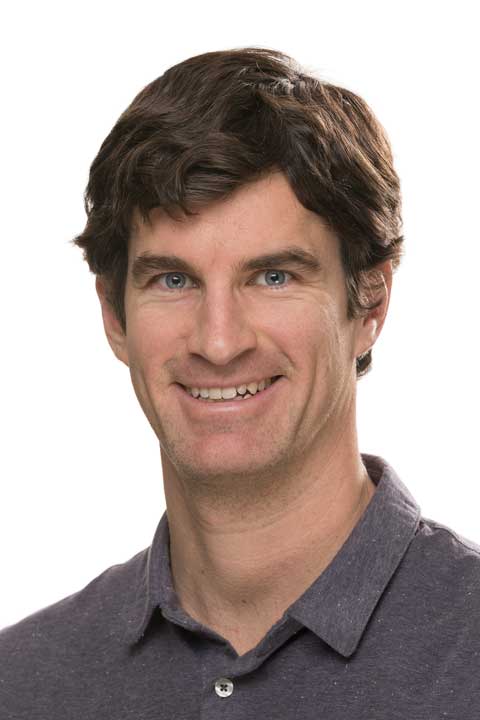
credit: Université de Montréal
Professor at Université de Montréal, Laboratory of Plant Functional Ecology
MONDAY, AUGUST 15 | 10:30-11:30 AM EST
Room 517
He has been awarded the Tansley Medal (New Phytologist Trust) and the William Cooper Award (ESA) for research contributions to plant ecology.
Scientific Interfaces
On the Role of Ecology in the Public and Private Sector: A Perspective in Environmental Compliance
-Dr. Melanie Okoro
Former NOAA Scientist turned entrepreneur, Dr. Melanie Okoro, grew up fishing with her great-grandmother, who raised her in Tuskegee, Alabama. Those years were special and formative, and instilled in her a love for the environment. Currently, Dr. Okoro is the CEO and founder of Eco-Alpha Environmental and Engineering Services, Inc; an minority-owned firm providing sustainable environmental and engineering solutions in the water, utilities, transportation, real-estate industries.
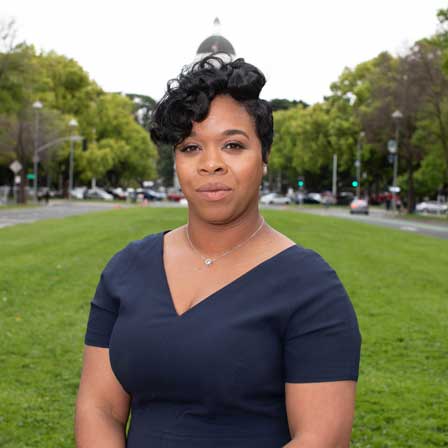
Dr. Melanie Okoro
CEO / Founder Eco-Alpha Environmental and Engineering
TUESDAY, AUGUST 16 | 12:15 -1:15 PM EST
Room 517AB
I am proud to join the Board of Sacramento Splash; an organization who is leading the charge during a transformative time to implement initiatives, curricula, and educational programs that ignite exploration and investigation through nature in K-12 youth regionally and nation-wide! With a goal to inspire the next generation of stewards and I’m excited to be a part of Sac Splash – empowering the communities we serve.
Dr. Okoro is passionate about increasing diversity and inclusion in the STEM fields. Dr. Okoro holds a PhD in Marine Estuarine and Environmental Science from the University of Maryland Baltimore County and Bachelor of Science in Biology from Johnson C. Smith University (JCSU). Her previous appointments include Early Career Scientist presentative on the Board of the American Geophysical Union (AGU) and Minorities Pursuing Higher Degrees in Earth System Science (MS PHD’S). In 2016, she was awarded the Baltimore Ecosystem Study Distinguished Alumni Award and in 2018 the United States Department of Commerce, NOAA National Marine Fisheries Service Employee of the year. Dr. Okoro serves as the Sacramento Black Chamber of Commerce Small Business representative on the California High Speed Rail Authority Business Advisory Council. She is a proud member of the Sacramento Black Chambers of Commerce and currently serves as the Board President of the Sacramento Splash. During the COVID-19 pandic implemented workforce development programs to empower the communities her organization serves such as the Energy Baron Program, working alongside organizations such as the Sacramento Sustainable Communities Collaborative — SHRA, UC-Davis Health, Sacramento Black Chambers of Commerce, Sacramento Kings, and SMUD. S
Recent Advances Lecture
Convergent Movement Data Science
-Dr. Somayeh Dodge
Dr. Somayeh Dodge is an Assistant Professor of Spatial Data Science and leads the MOVE Research Lab in the Department of Geography at the University of California, Santa Barbara. She received her PhD degree in Geography with a specialization in Geographic Information Science (GIScience) from the University of Zurich, Switzerland in 2011. She holds an MS degree in GIS Engineering and a BS degree in Geomatics Engineering from the KNT University of Technology, Iran.
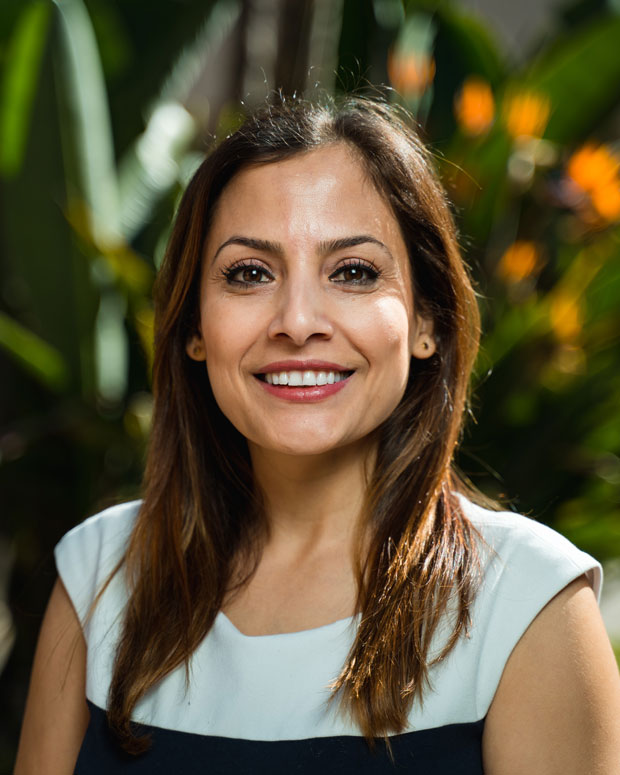
credit: University of California, Santa Barbara
Assistant Professor of Spatial Data Science
WEDNESDAY, AUGUST 17 | 12:15-1:15 PM EST
Room 517AB
Somayeh is a recipient of the prestigious CAREER award from the U.S. Science National Foundation (NSF) in 2021, and the 2022 Emerging Scholar Award from the Spatial Analysis and Modeling Specialty Group of the American Association of Geographers (AAG). Supported by the NSF, Somayeh’s research focuses on developing data-driven analytics, knowledge discovery and modeling approaches, and visualization techniques to study movement in human and ecological systems. Her work has appeared in a number of high-ranked journals including Methods in Ecology and Evolution, International Journal of Geographic Information Science (IJGIS), Philosophical Transactions of the Royal Society B, Movement Ecology, Cartography and Geographic Information Science (CaGIS), and Computers, Environment and Urban Systems (CEUS). Somayeh currently serves as a Director on the Board of Directors of the University Consortium for Geographic Information (UCGIS), and as the Co-Editor in Chief of the Journal of Spatial Information Science. Before joining the UC Santa Barbara in July 2019, Somayeh served on the faculties of the University of Minnesota, Twin Cities (2016-2019) and the University of Colorado, Colorado Springs (2013-2016). Prior to that, she was a postdoctoral fellow at the Department of Civil, Environmental, and Geodetic Engineering at The Ohio State University in 2012.
CSEE Public Plenary
The Value of Small Spaces for Biodiversity Conservation
-Professor Lenore Fahrig
Lenore Fahrig is Chancellor’s Professor of Biology at Carleton University, Ottawa, Canada. Fahrig and her students study the effects of landscape pattern – habitat loss and fragmentation, roads and traffic, cropping patterns – on biodiversity. Fahrig is recipient of the Distinguished Landscape Ecologist Award from IALE-North America, and the President’s Award from CSEE, and is a Fellow of the Royal Society of Canada. A study in 2019 ranked her impact in the top 0.01% of all 7 million scientists worldwide.
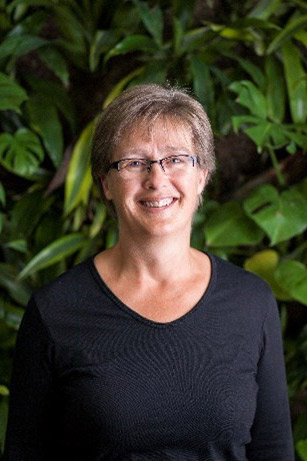
credit : Carleton University
Chancellor’s Professor of Biology at Carleton University, Ottawa, Canada
Plenaries – 2022 Annual Meeting (esa.org)
WEDNESDAY, AUGUST 17 | 7:00 – 8:00 PM EST
Auditorium Henry Teuscher, at the Montreal Botanical Garden
MacArthur Lecture
Species Coexistence in Diverse Communities
-Professor Jonathan Levine
Jonathan Levine began his career as an undergraduate researcher in marine ecology at Brown University, before heading to UC Berkeley for a PhD focused on plant invasions. He conducted postdoctoral work on coexistence theory at the Centre for Population Biology at Imperial College, Silwood Park in the UK. He spent nine years as an assistant through full professor in the University of California system (UCLA and UC Santa Barbara)
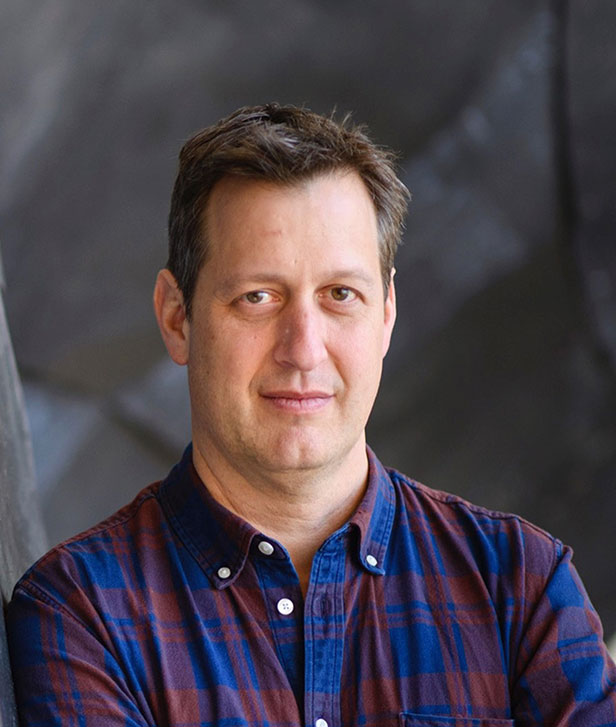
Jonathan Levine, Princeton University
THURSDAY, AUGUST 18 | 12:15-1:15 PM EST
Room 516B
developing a research program on species coexistence at the interface of theory and experimentation. He then moved to ETH Zurich in Switzerland, where he served as Professor of Plant Ecology for seven years, expanding his research program in climate change and eco-evolutionary directions. In 2019, he moved back to the United States to take a position at Princeton University. Jonathan has been an ESA member for 25 years. He has served the society for eight years on the Awards Committee, and served for over ten years as a handling editor for Ecology and Ecological Monographs. Jonathan is the recipient of ESA’s George Mercer Award and Robert MacArthur Award, and has been an ESA Fellow since 2019. Jonathan particularly welcomes the opportunity meet with PhD students from across ecology in Montreal- just send him an email.
